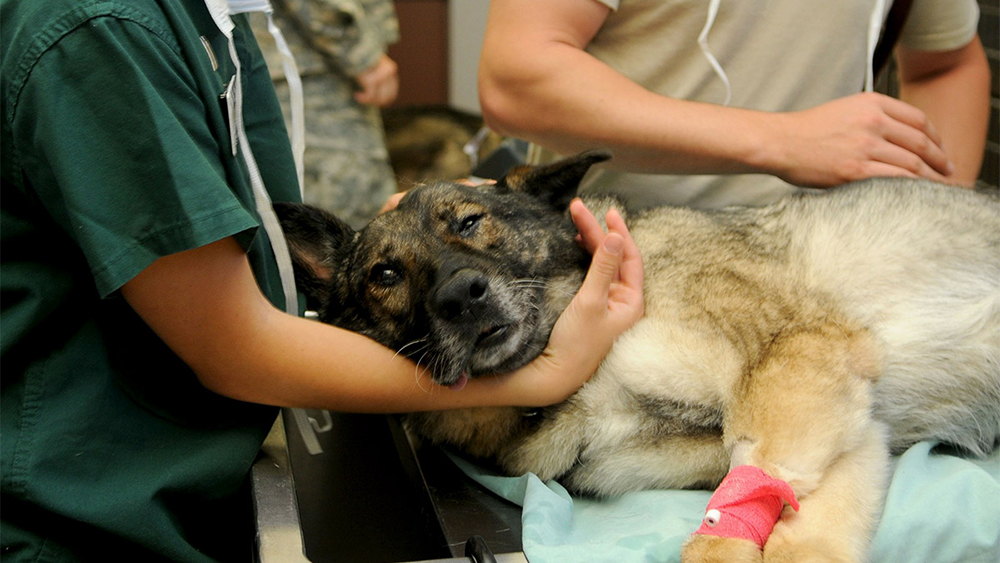By Heidi Clayton
Given the recent social media drama over the mysterious respiratory virus going around, I decided to talk about a condition that your dog is more likely to contract. Kennel cough, or specifically, canine infectious tracheobronchitis, is the most common and easily spread virus or infection around in the dog world. Basically, it’s the common cold of the dog world.
Kennel cough is either caused by the bordetella, streptococcus, mycoplasma, or chlamydia bacteria or viral caused by canine parainfluenza, canine adenovirus, canine distemper, herpes, reovirus, coronavirus, or pneumovirus. Some of the viruses may not be the actual cause of kennel cough but can weaken your dog’s immune system and respiratory system which can then cause the actual bout of kennel cough.
Kennel cough got its name as it typically festers in locations like dog kennels where large numbers of dogs gather. If your dog regularly goes to day care, dog boarding, dog parks, group training classes, grooming salons, and even vet offices, they are susceptible to contracting kennel cough. It is spread primarily through aerosols or tiny water droplets in a dog’s cough or sneeze. It can also be left on surfaces like toys, food and communal water bowls in unventilated indoor areas. People who handle infected dogs can also transmit it from dog to dog. Many people report that their dogs contracted kennel cough despite not being exposed to a large number of dogs. Most likely they were exposed to a surface like dog poop out on a walk, dust, or even cigarette smoke. Stress can also make dogs more susceptible to kennel cough.
The most obvious symptom of kennel cough is a dry hacking cough that is often described as sounding like a goose honking. Other symptoms may be a runny nose, sneezing, lethargy, and a low fever. Kennel cough can be tough to diagnose if your dog doesn’t actively cough in front of the vet. If you suspect your dog has kennel cough but is not showing signs of being terribly sick, most often vets suggest that it will run its course and to quarantine your dog at home for at least two weeks.
Kennel cough has an incubation period of 2-14 days with symptoms possibly lasting for 7-14 days. Keep your dog home even if they stop coughing after a few days as they are contagious for at least 10 days after last showing symptoms. Dogs can also be asymptomatic, which makes kennel cough nearly impossible to manage in places where it is common.
Treatment of kennel cough will be keeping your dog rested and well-hydrated. Cough medicines are often used, and occasionally your vet may prescribe a round of antibiotics.
In all of my years of showing dogs, I have only had one round of kennel cough that I believe was contracted from a show. I had another round when my dog had a playdate with an asymptomatic dog. Both times, I let it run its course in the younger dogs and gave a round of antibiotics to my elderly dogs. If you feel like your dog is not improving, you should schedule a check-up for a possible chest X-ray.
The best way to combat kennel cough is to stay up to date on the Bordetella vaccine. Unlike many vaccines, the kennel cough vaccine does not remain effective beyond one year. If you plan on taking your dog to day care or boarding, make sure that your dog is properly vaccinated before doing so.
If your dog is coughing, keep them home and secluded just to be safe. Also, for god’s sake, clean up after your dog’s poop, especially at the EHT Nature Preserve or any park where other dogs might be!
If you have any questions, please feel free to email me at heidi@fouronthefloordogtraining.net.
Heidi Clayton started Four On the Floor Dog Training to provide positive, reward-based dog training in South Jersey. She breeds, trains and shows bull terriers under the SoraBully’s Bull Terriers kennel name. Email questions to heidi@fouronthefloordogtraining.net or learn more at https://fouronthefloordogtraining.net










